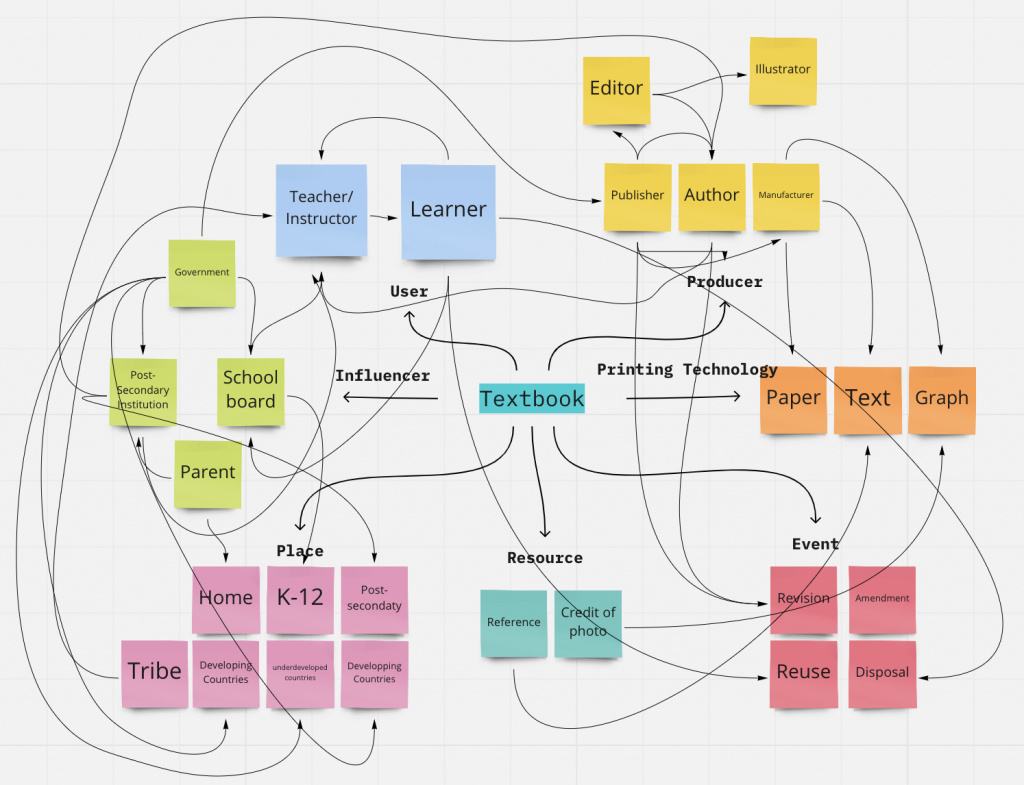Jane (2010) asks, “Are you ready, and at the price of what sacrifice, to, live the good life together?” This question mainly guides me through the reading of new materialism. First of all, how should I define the “good life” in this decade? While we think about the intra-actions of matters that constitute a good life, the definition and description should constantly change and unfold (Three Minute Theory, 2014). For example, at the time of Post-WWII, the government of the United States advocated that consumerism led to a better life and the invention of television empowered this campaign (Conflict of Systems, n.d.). Although this documentary film claims consumerism is a false assumption of a good life, it is undeniable that the economic boom brought about by consumerism helped the United States recover from the post-war depression and gain world dominance through capitalism. Consumerism indeed provides a good life” for post-war Americans. In contrast, the overproduction, waste of resources and climate change brought about by globally intensified consumerism over the last century can no longer support a good life for any of the earth’s entities or “constitutive entities” now (Coole et al., 2010).
Similarly, the textbook was human’s primary learning tool after the revolutionary improvement in printing technology since it “enhances accuracy, accessibility, flexibility and ease of education beyond time and space through written texts” (from my analysis using Mcluhan’s Tetrad in IP2). However, it no longer meets the world’s current needs as human and non-human actors continuously change. Firstly, the revolution in educational theories that began in the last century advocates replacing the traditional teacher-led transmissive model with a student-centred learning approach. Secondly, the increasingly scarce natural resources due to overproduction and the growing global population have led environmental groups to raise awareness of the waste of resources associated with printing and severe textbook wastage due to frequent updates. Thirdly, the proliferation of electronic devices since the 1990s has enabled paperless reading and opened up the possibility of different learning modes. Not to mention, the global virus such us the Covid-19 further facilitates the transition from the textbook to its digital successors: e-textbooks, podcasts, video lectures, and audiobooks. As a result of the vibrant intra-actions of these and many other human and non-human (technology advances, culture/theory changes, nature and the virus) actors, we see more digital, interactive, and multi-modal learning technologies are replacing the market share of the paper-printed textbook (Toohey, 2018).
From the new materialism perspective, the rise and fall of the textbook answer Jane’s question at the beginning of this reflection. While the pursuits of the good life and good education remain the same, the selection of the primary educational technology will always change since “human intentions are always in competition and confederation with many other strivings” (Bennett, 2010).
Note: after learning new materials, I would like to add 2 more assemblages to the below Actor-Network of the Textbook from my IP2: Cultures and Political influences.

References:
Bennett, J. (2010). Vibrant matter: A political ecology of things. Duke University Press. https://doi.org/10.2307/j.ctv111jh6w
Charteris, J., Smardon, D., & Nelson, E. (2017). Innovative learning environments and new materialism: A conjunctural analysis of pedagogic spaces. Educational Philosophy and Theory, 49(8), 808–821. https://doi.org/10.1080/00131857.2017.1298035
Conflict of Systems. (n.d.). Produce and Consume. https://www.bilibili.com/video/BV1Nb411x7eP/?spm_id_from=333.999.0.0&vd_source=de1c920b639cbfeb94afc74e4fbb9b5e
Coole, D., Frost, S., Bennett, J., Cheah, P., Orlie, M. A., & Grosz, E. (2010). New Materialisms. Duke University Press. https://doi.org/10.1215/9780822392996
Three Minute Theory. (2014). What is Intra-Action? Youtube. https://www.youtube.com/watch?v=v0SnstJoEec
Toohey, K. (2018). Chapter 2: New Materialism and Language Learning. Learning English at School: Identity, Socio-material Relations and Classroom Practice (2nd ed.) (pp. 25-44). Bristol, Blue Ridge Summit: Multilingual Matters. https://doi.org/10.21832/9781788920094-004